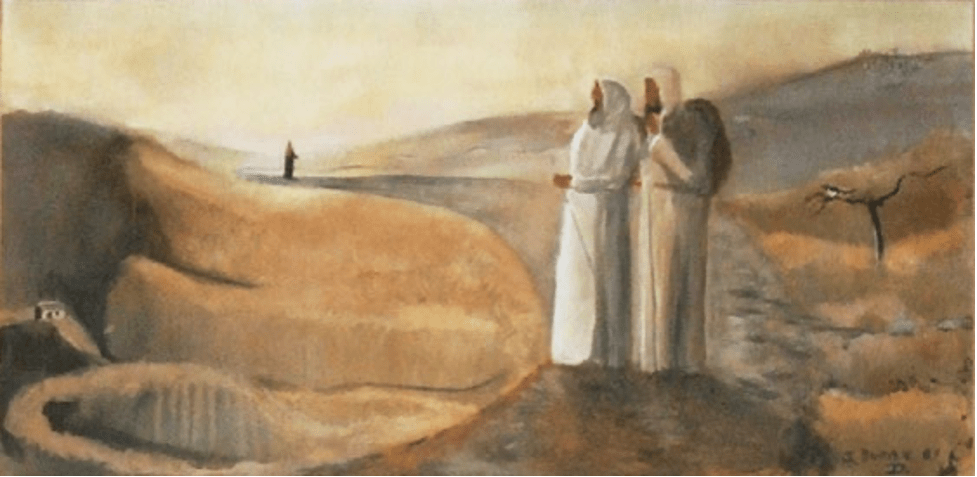It was 22 years ago this month that Randy Reese and I attended the International Consultation on Discipleship, a conference in Eastbourne, England. An important week in my life personally and in the life of VantagePoint3 (VP3). As I remember it, there were 400+ Christian leaders from 50+ countries, gathered to address the state of the church’s discipleship efforts globally. “The church is 1000 miles wide and ½ inch deep” became a rallying image for why the gathering had been convened.
As the presentations and conversations proceeded, I remember hearing from a variety of voices that one is hard-pressed to find time in history when the church had gone more places, provided more resources and proclaimed the gospel more widely than in the 20th century. Yet as the church was about to enter into a new millennium there seemed to be a growing realization that so many of our efforts were just skimming across the surface.
There was resounding consensus among the gathered that as John Stott put it, “the church’s evangelistic zeal to go wider had not been matched by a commitment to go deeper.” Stott clearly set the tone for the conference in his keynote address:
I wonder how you would sum up the Christian situation in the world today. For me, it’s a strange, rather tragic, and disturbing paradox. On the one hand, in many parts of the world the church is growing by leaps and bounds. But on the other hand, throughout the church, superficiality is everywhere. That’s the paradox. Growth without depth.
No doubt God is not pleased with superficial discipleship. The apostolic writers of the New Testament declare with one voice that God wants his people to grow up and grow into maturity in Christ.
Stott’s paradox of statistical growth without discipleship depth has proven to be very influential in the ongoing development of VP3’s mission and approach. How can we be a small part of helping the church deepen its people in the face of the prevalent superficiality of the culture and the church? This question continues to lie at the heart of our work.
As I reflect back today on that September 1999 conference, I find myself both grateful and alert.
I am grateful: Over the past 20+ years so many people and organizations across the globe, VP3 being one of them, have had ears to hear and respond to this call to make disciples, not just converts. “The world needs deep people” as Richard Foster put it in 1978. One of my friends refers to this deepening impulse as “a quiet movement of the Holy Spirit around the world.” God wants his people to grow up and grow into maturity in Christ.
I am alert: The challenging dynamics of the last 18+ months have been confusing and unsettling, even exposing of who we are and where we actually put our trust. But we serve an unimaginably creative and developmental God who uses the disruptions of our lives to shape and mature us. In my prayerful looking around the current landscape, I am wondering how the Spirit might be creatively inviting us to a deeper faith amidst this difficult and wearying set of circumstances? As individuals and as local church communities in this peculiar time, might we be willing “to be led deeper into the heart of Christ?”[1] God wants his people to grow up and grow into maturity in Christ.
So… may we continue to sense the urgency of these “1000 miles wide and ½ inch deep” realities; and may we be patient in our efforts of growing up into Christ and helping others do the same (Ephesians 4:15). God is already up to something good…
Let us be the people of God in this time. Spirit of God, lead us deeper into the heart of Christ.
[1] Henri Nouwen writes, “The task of future Christian leaders is not to make a little contribution to the solution of the pains and tribulations of their time, but to identify and announce the ways in which Jesus is leading God’s people out of slavery, through the desert to a new land of freedom. Christian leaders have the arduous task of responding to personal struggles, family conflicts, national calamities, and international tensions with an articulate faith in God’s real presence. They have to say “no” to every form of fatalism, defeatism, accidentalism or incidentalism which make people believe that statistics are telling us the truth. They have to say “no” to every form of despair in which human life is seen as a pure matter of good or bad luck. They have to say “no” to sentimental attempts to make people develop a spirit of resignation or stoic indifference in the face of the unavoidability of pain, suffering, and death. In short, they have to say “no” to the secular world and proclaim in unambiguous terms that the incarnation of God’s Word, through whom all things came into being, has made even the smallest event of human history into Kairos, that is, an opportunity to be led deeper into the heart of Christ.” In the Name of Jesus: Reflections on Christian Leadership (Crossroad, 1992), 67-68.




kennette osborn On September 18, 2021 at 1:56 pm
I have 2 dear friends that were in a Journey and Way of Life that I facilitated. Those times were so life changing and eye opening as we journey on. Just this last week we were sharing together much of what you just talked about here. We plan to reconnect on mentoring way and revisit our stories and earnestly pray for God’s leading as he challenges our hearts for service. Thank you for being faithful in your leadership!